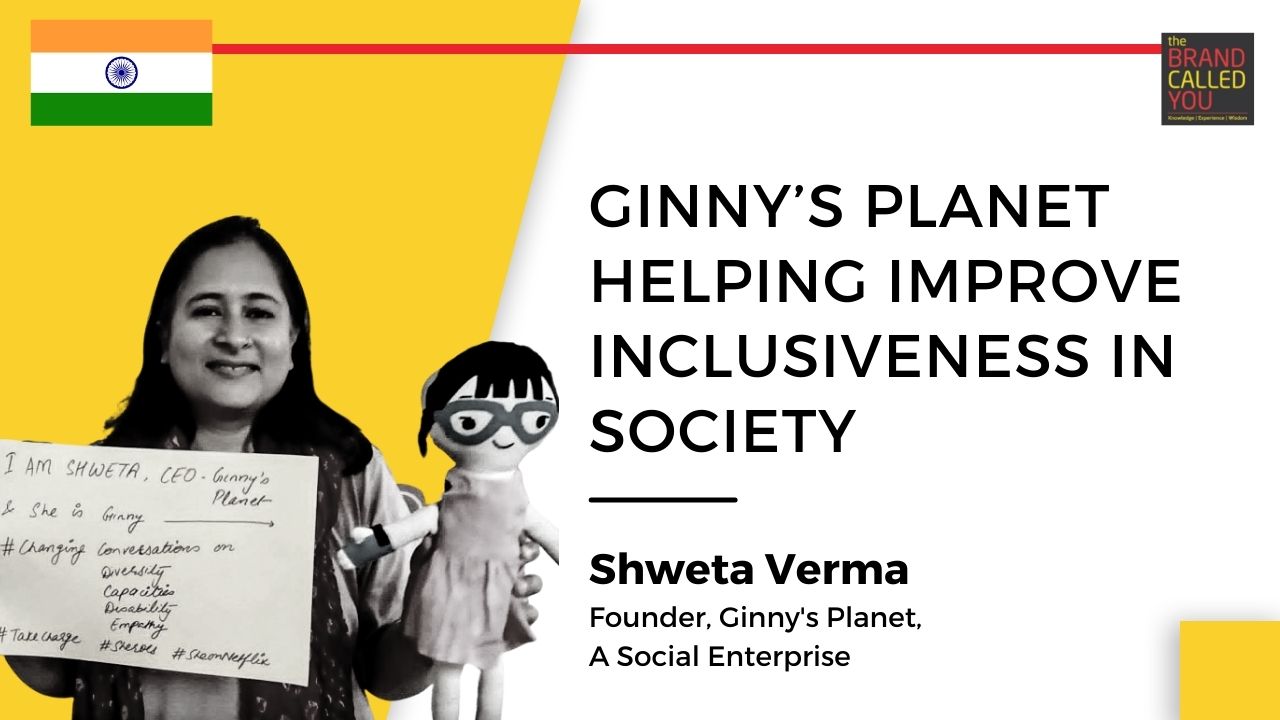Shweta Verma, Founder, Ginny’s Planet, A Social Enterprise
Shweta Verma: A social work professional who turned towards social entrepreneurship in 2019. My work since 2002 has largely been in the domain of mental health and disability rights.
Podcast
Podcast: Play in new window | Download
Follow TBCY RSS
Overview
Unlike before, schools, colleges and the workplace today are focusing on creating an inclusive environment to provide equal opportunities to people with mental or physical disabilities. But there’s still a long way to go to spread the concept of inclusivity and diversity to every individual. People with disabilities go through different kinds of hardships, one among which is accepting they are different and getting acceptance from others.
In today’s episode of TBCY, we are extremely delighted to have Shweta Verma with us. She is the founder of Ginny’s Planet, which creates products and conducts workshops to nurture empathy and encourage people to have conversations on empathy, diversity, and disability.
About Shweta Verma
Shweta is the founder of GInny’s Planet private Limited, a social entrepreneur working with the framework of mental health, human rights, and inclusive development in India.
Discussion
What’s Ginny’s planet and what was the motivation to start it?
Ginny’s planet is a social enterprise working towards building a world where nobody feels like an odd-one-out.
“We simplify and trigger conversations on empathy, disability, and diversity, and we use dolls and puppets stories and workshops to do so”
Shweta had worked for disability rights and her career involved working with NGOs for years. When she gave birth to her son, she found out that he was born with conditions that required surgery and he would have to accept that he is different gracefully. That’s when Shweta thought she would use her career experience to help children understand the concept of inclusivity and found Ginny’s Planet in 2019.
The Message of Ginny’s Planet and their way of Conveying it
Ginny’s planet uses dolls and puppets. Ginny is a doll, who is designed as a 4-year-old character with a disability. This doll is used to make people understand that there are children with disabilities who are different from those you usually meet and that It’s okay to be different.
At what age should we start talking about inclusion and diversity in schools?
Shweta says that children observe everything around them and once they observe different people, they also become a part of their life. She suggests that schools should start teaching about this aspect from the very beginning to children so that people with disabilities don’t have a hard time being accepted by others. Teachers should talk about diversity and inclusivity in order to make children adapt to the lessons in their very childhood.
What role can society and government play to make sure Ginny is accepted everywhere?
Shweta says that it’s important for us to realize that we have made some mistakes in dealing with disabled people so far and we need to correct them. Schools and companies hesitate to take people with disabilities thinking they lack resources to engage with them efficiently and still do nothing to help them feel included. But this mentality needs to change.
Shweta says, “No matter how progressive we may think we are if we accept the fact that we don’t know everything and we need to learn more and use that will to take the correct force of action, we can build an inclusive world”
Profile
Shweta Verma: A social work professional who turned towards social entrepreneurship in 2019. My work since 2002 has largely been in the domain of mental health and disability rights. In 2019, I launched Ginny’s Planet with the objective of simplifying and triggering conversations on empathy, diversity, and disability, especially among children (and people of other ages). Ginny’s Planet is building a world where nobody feels like an odd-one-out and where being different is okay. We use workshops, conversations, dolls, puppets, stories , and online content.


